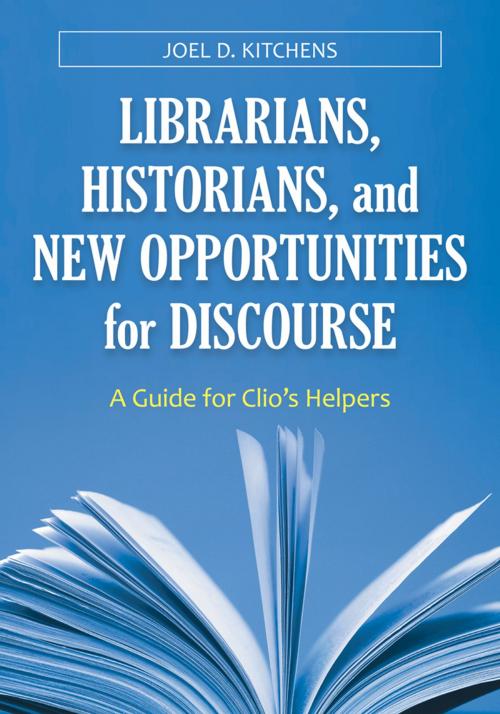Librarians, Historians, and New Opportunities for Discourse: A Guide for Clio's Helpers
Nonfiction, Reference & Language, Language Arts, Library & Information Services| Author: | Joel D. Kitchens | ISBN: | 9781598846263 |
| Publisher: | ABC-CLIO | Publication: | May 15, 2012 |
| Imprint: | Language: | English |
| Author: | Joel D. Kitchens |
| ISBN: | 9781598846263 |
| Publisher: | ABC-CLIO |
| Publication: | May 15, 2012 |
| Imprint: | |
| Language: | English |
Today's history scholars and students utilize information in many different formats, including print, microforms, and digital, with each having its own format-specific requirements. For historians, the library is an essential resource that serves as their "laboratory." Librarians need to recognize the changing needs of this group—arguably among the heaviest users of library materials and services.
Librarians, Historians, and New Opportunities for Discourse: A Guide for Clio's Helpers addresses the concerns and typical operational decisions of librarians in academic libraries regarding reference, instruction, and collection management. The book looks at the role of the librarian holistically, paying special attention to how history is researched and taught, and how this affects librarians.
After reading this book, librarians will better understand this group of patrons who are so dependent on library resources for their research and teaching; conversely, historians will grasp the pressures on librarians making the difficult transition between the print and the digital age. As a result, every reader will be capable of having a more informed dialog with "the other half," regardless of their status as a librarian or a historian.
Today's history scholars and students utilize information in many different formats, including print, microforms, and digital, with each having its own format-specific requirements. For historians, the library is an essential resource that serves as their "laboratory." Librarians need to recognize the changing needs of this group—arguably among the heaviest users of library materials and services.
Librarians, Historians, and New Opportunities for Discourse: A Guide for Clio's Helpers addresses the concerns and typical operational decisions of librarians in academic libraries regarding reference, instruction, and collection management. The book looks at the role of the librarian holistically, paying special attention to how history is researched and taught, and how this affects librarians.
After reading this book, librarians will better understand this group of patrons who are so dependent on library resources for their research and teaching; conversely, historians will grasp the pressures on librarians making the difficult transition between the print and the digital age. As a result, every reader will be capable of having a more informed dialog with "the other half," regardless of their status as a librarian or a historian.







![Cover of the book America Goes Green: An Encyclopedia of Eco-Friendly Culture in the United States [3 volumes] by Joel D. Kitchens](https://www.kuoky.com/images/2012/november/300x300/9781598846584-6h8b_300x.jpg)







